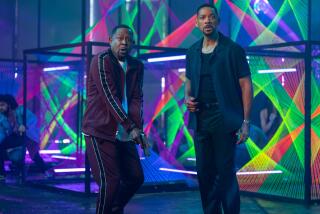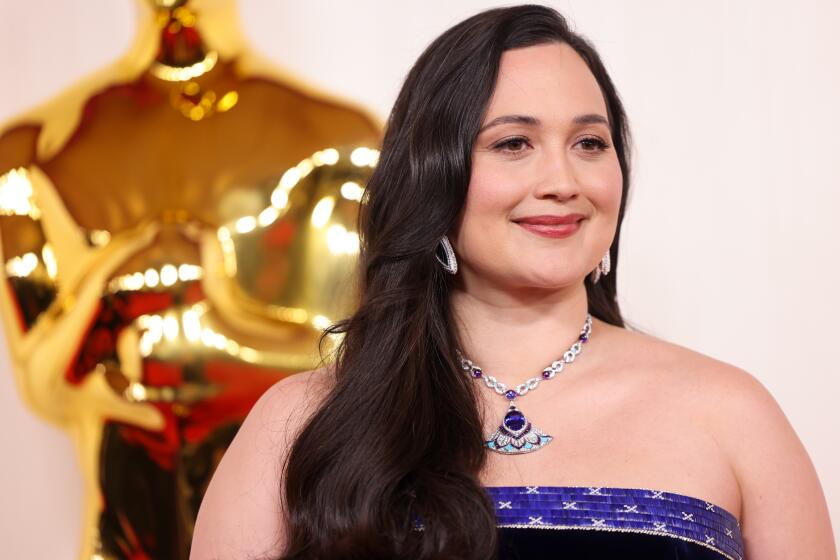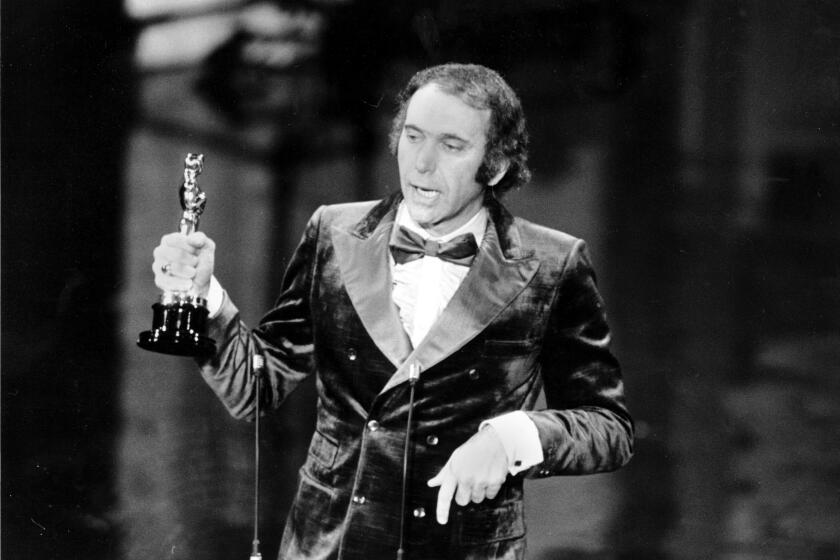‘Ma Rainey’s Black Bottom’ director George C. Wolfe brings the blues to life on screen

There are few living talents who could be viewed as much of a New York theater institution as George C. Wolfe, the two-time Tony-winning director whose overall grasp of the arts is such that he speaks in cascades of enthusiasm and insight that he can barely contain. But if you want to get his goat, just ask him about opening up a celebrated play for the big screen, such as he did with August Wilson’s “Ma Rainey’s Black Bottom,” in which Viola Davis plays the title role.
“I would like to take the words ‘open’ and ‘up’ and stomp them,” Wolfe says. “You can’t think about that.”
His point is that you don’t expand on a play’s mise-en-scène just for physicality’s sake; it has to be in the service of story. So what he and screenwriter Ruben Santiago-Hudson did was cut about 30 to 40 minutes of Wilson’s first act, which on stage was spent with Rainey’s band as they anticipate the pioneering blues singer’s arrival at the recording studio in Chicago, the play’s sole setting. Instead, we’re quickly introduced to her in performance — first in a tented venue in Barnesville, Ga., then in Chicago’s Grand Theatre, where Rainey’s upstart cornet player Levee (Chadwick Boseman) competes with her for the spotlight.
“I wanted to see Ma as soon as possible,” Wolfe says. “But I also wanted to maximize the time when Ma and Levee are sharing the screen, because that’s the power dynamic that I really wanted [to explore].”
This opening gambit also places the characters in the context of the time, 1927, juxtaposing the South, where Rainey solidified her following, with the North, where, as we see in the film, newspapers attempt to lure Southern Blacks with the promise of work as “butlers, porters, waiters and cooks” — not exactly the kinds of opportunities Ma and her nattily attired bandmates are looking to embrace.
“I thought August was writing about the consequences of leaving the South,” Wolfe says. “There’re job opportunities there. And Jim Crow laws. And lynchings were happening in record numbers. But at the same time, communities and structures and land and ownership were possible in the South. Whereas if you came north, if you wanted to get anything, you had to come into contact with the white power structure as it existed.”
Bitterness and resentment — over past and present slights, the horrors of racism, the appropriation of Black culture by the white establishment — roils beneath the surface and reaches a boiling point on more than one occasion. It becomes a game of one-upmanship among the bandmates over who’s been the most victimized and claims of what’s rightfully theirs, versus settling for what the pianist Toledo (Glynn Turman) calls “the leftovers.”
Wolfe says he worked with production designer Mark Ricker in crafting the shabby basement where the musicians rehearse to feel like a boxing ring. “But instead of punches, it’s language that’s flying,” he says. “They’re talking to each other and trying to outdo each other. It becomes like these jazz riffs and taking solos.”
Levee — who sees himself less as a side player and more of a leader in the Buddy Bolden or King Oliver mold — is particularly scarred by a harrowing incident he witnessed as an 8-year-old boy, which fuels his rage against what he perceives as a godless universe.
“It’s then about what you must do, what you must claim, what you must own,” says Wolfe, “when you are existing in a world that refuses to acknowledge your power, your potency or that you’re woke as a human being.”
Wolfe says the underlying tragedy of Wilson’s piece is the clash of egos between Ma and Levee, when they should be lifting each other up. “Because Levee has an understanding of where the music is going,” Wolfe explains, “he knows the future. And Ma has an understanding that’s very savvy and very smart. And they could benefit from each other’s knowledge, both professionally and in terms of navigating a racist landscape. But because of the smallness that’s in all of us, they can’t do that.”
As a Black, gay artist, Wolfe has faced his own hurdles, even if he’s cleared them with astounding frequency. He established himself as a playwright (“The Colored Museum,” “Jelly’s Last Jam”), then earned great acclaim and his Tonys, as the director of Tony Kushner’s landmark play about the AIDS crisis, “Angels in America: Millennium Approaches” (1993) and the musical “Bring in ’da Noise, Bring in ’da Funk” (1996), which he also conceived. His DGA Award for the TV movie “Lackawanna Blues” (2005), based on Santiago-Hudson’s play, opened up even more doors, which he’s made his mission to do for other diverse voices throughout his career, most notably as artistic director-producer of the New York Shakespeare Festival/Public Theater for more than a decade.
“It’s about expanding the understanding of the texture of this country,” he says. “Hopefully, we’re all involved in that experiment, and that responsibility, which is expanding the breadth of stories.
“It’s putting those truths and those energies out there around the world,” he adds, “and that’s where the healing is. The healing isn’t in skipping over history; the healing is digging into it.”
More to Read
From the Oscars to the Emmys.
Get the Envelope newsletter for exclusive awards season coverage, behind-the-scenes stories from the Envelope podcast and columnist Glenn Whipp’s must-read analysis.
You may occasionally receive promotional content from the Los Angeles Times.






